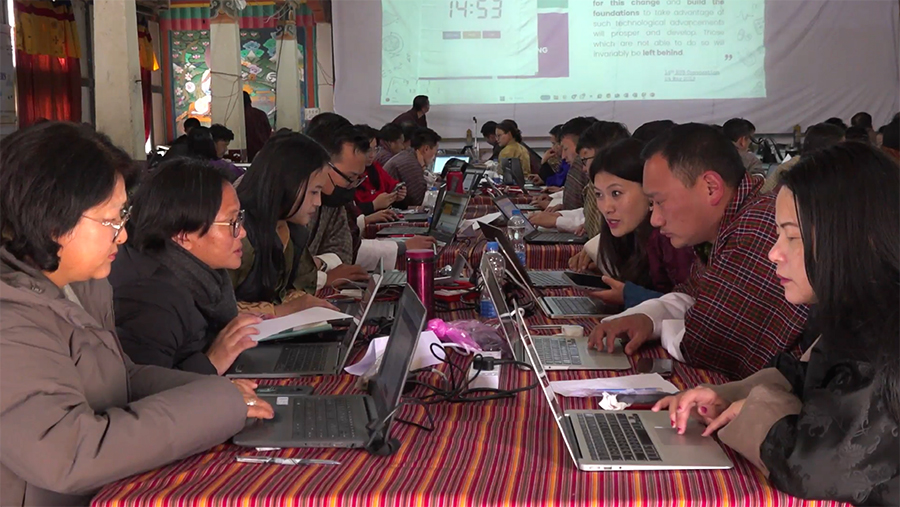 In an effort to enhance digital literacy, around 200 teachers from 60 schools across the country have been trained in coding over the past four years. The programme was conducted in three phases, primarily targeting primary school teachers, providing them with expertise in various coding programmes. The final phase of this coding initiative concluded yesterday in Wangdue Phodrang.
In an effort to enhance digital literacy, around 200 teachers from 60 schools across the country have been trained in coding over the past four years. The programme was conducted in three phases, primarily targeting primary school teachers, providing them with expertise in various coding programmes. The final phase of this coding initiative concluded yesterday in Wangdue Phodrang.
 In the final phase, around 100 teachers from various schools attended the week-long programme at Bajothang Higher Secondary School in Wangdue Phodrang.
In the final phase, around 100 teachers from various schools attended the week-long programme at Bajothang Higher Secondary School in Wangdue Phodrang.
While some included ICT teachers, there were also teachers teaching general subjects.
 During the training, teachers engaged in hands-on coding sessions on programmes such as Scratch Jr., Scratch Block Coding, Micro:bit, Python Turtle, and CodeMonkey, alongside the key skills outlined in the ICT curriculum framework.
During the training, teachers engaged in hands-on coding sessions on programmes such as Scratch Jr., Scratch Block Coding, Micro:bit, Python Turtle, and CodeMonkey, alongside the key skills outlined in the ICT curriculum framework.
Upon returning to their respective schools, teachers are expected to initiate various activities, including coding clubs, mini ICT competitions, and digital exhibitions, to promote coding education.
 The project also provided laptops and Micro:bit devices to the teachers. So far, over 700 laptops and more than 300 Micro:bits were distributed.
The project also provided laptops and Micro:bit devices to the teachers. So far, over 700 laptops and more than 300 Micro:bits were distributed.
Micro:bit is a single-board computer designed for programming.
Sonam Tshultrim, a teacher at Chang Rigphel Primary School in Thimphu said “Coding provides various approaches to solving problems and achieving results. Therefore, I find these skills highly beneficial for developing their mental abilities.”
Tshering Lhadon, a teacher at Jigme Namgyel Lower Secondary School in Thimphu said “The coding stage for classes PP to III is primarily focused on using blocks and their implementation. However, as student progress to higher levels, they can create new ones. So, ultimately, this helps students acquire knowledge on how to develop new software and other technologies.”
Similarly, Tashi Penjor, a teacher at Logodama Primary School in Punakha said “In the last two years, our school’s coding club developed a theft alarm using Micro:bit. We even showcased this creation in a coding competition. Similarly, we have plans to create new projects such as a sound-controlled system that uses sensors to signal when the classroom is noisy.”
Pemaa Tenzyin Namgyel, General Affairs Coordinator of VTOB Foundation said “Especially with the usage of Laptops and Micro:bit, they are able to enhance and broaden their learning capacity in terms of coding and programming. So, because of that, they are able to have basic implementation such as developing alarm systems and all. So, this has been the achievement through the implementation of the project at the primary level.”
The Ministry of Education and Skills Development in collaboration with and funding from VTOB Foundation, Dariu Foundation and Curti Foundation under the Digital Literacy Initiative Project implemented the training.
Organisers also plan to focus on programme development and robotics exploration in future as an advanced skill.
Changa Dorji, Wangdue Phodrang
Edited by Tshering Zam








